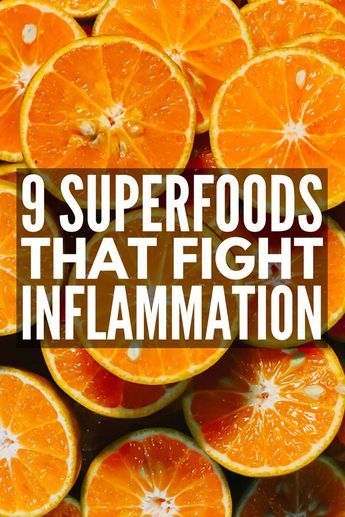Inflammation can be both good and bad. It’s your immune system’s normal reaction to irritation, injury or infection, and it’s a natural part of healing. While it helps your body fight foreign invaders, chronic inflammation can put your body in serious pain and lead to diseases such as cancer, diabetes and heart disease. Following a diet full of anti-inflammatory foods is a great way to fight chronic inflammation. We’ve compiled 40 anti-inflammatory smoothie recipes to help you get all your nutrients in and help you feel better.
What Does ‘Anti-Inflammatory’ Mean?
Inflammation is your body’s response to fighting against things that harm it, such as infections, injuries and toxins. It’s your body’s attempt to heal itself, but while it can do good in some cases, it can become your enemy in others. When your body recognizes anything that’s foreign (such as an invading microbe, plant pollen or chemical), it triggers inflammation.
While inflammation can protect your health, if it persists when you’re not threatened by a foreign invader, it can be dangerous. Chronic inflammation has been linked to major diseases such as cancer, heart disease, depression and Alzheimers, and commonly results in pain, redness, and swelling. ‘Anti-inflammatory’ is a drug or substance that reduces inflammation in the body. There are certain foods that have awesome anti-inflammatory properties that help to heal inflammation.
9. Foods That Fight Inflammation
1. Berries
Berries such as blueberries, raspberries, strawberries and blackberries are packed with powerful antioxidants, which fight inflammation and cell damage. They contain antioxidants called anthocyanins, which have amazing anti-inflammatory effects. They’re also low in calories and are chock full of vitamins, minerals and fibre, so be sure to work them into your daily meal plan!
2. Avocados
Avocados are packed with healthy benefits, making them a must for an anti-inflammatory diet! They’re rich in heart-healthy monounsaturated fats, as well as potassium, magnesium, and fibre. They’re low in sodium and have a good dose of vitamins C, A, E and B-complex. With polyphenols that work as antioxidants, avocados are a great way to lower inflammation.
3. Oranges
Oranges are a great source of inflammation-fighting antioxidants. They’re high in vitamin C and potassium and also contain fibre, calcium and folate. Vitamin C is essential for your immune system function, strong connective tissue and healthy blood vessels, and oranges are an all around very healing fruit.
4. Turmeric
Turmeric is packed with curcumin, a powerful anti-inflammatory nutrient. Turmeric can reduce inflammation related to arthritis, diabetes and other diseases and it can also help in the management of exercise-induced inflammation.
5. Dark Chocolate
Three cheers for this one! Dark chocolate is rich in antioxidants, especially flavanols, which reduce inflammation and risk of disease. Flavanols are also responsible for keeping the endothelial cells that line your arteries healthy. Keep in mind, dark chocolate with at least 70% cocoa is needed to reap these anti-inflammatory benefits.
6. Cherries
Cherries are full of antioxidants such as anthocyanins and catechins, which fight inflammation. Antioxidants and anti-inflammatory properties are found in both sweet and tart cherries, so both can be used to lower your risk of disease.
7. Ginger
Ginger is one of the healthiest foods on earth. It contains a good dose of antioxidants as well as compounds that function the same way as anti-inflammatory drugs such as aspirin and ibuprofen. Ginger is thought to boost your overall immunity, and has been found to be especially beneficial for people with arthritis.
8. Carrots
Carrots are rich in vitamin A and beta-carotene, which is a powerful antioxidant. Both of which are believed to reduce inflammation. Carrots also contain fibre, vitamin K and potassium and have been linked to lower cholesterol levels and better eye health.
9. Kale
Kale is loaded with anti-inflammatory properties and contains phytonutrients and antioxidants that protect the body against cellular damage. It’s an excellent source of vitamins A,C and K and contains calcium, magnesium, potassium and vitamin C, while being low in sodium.



